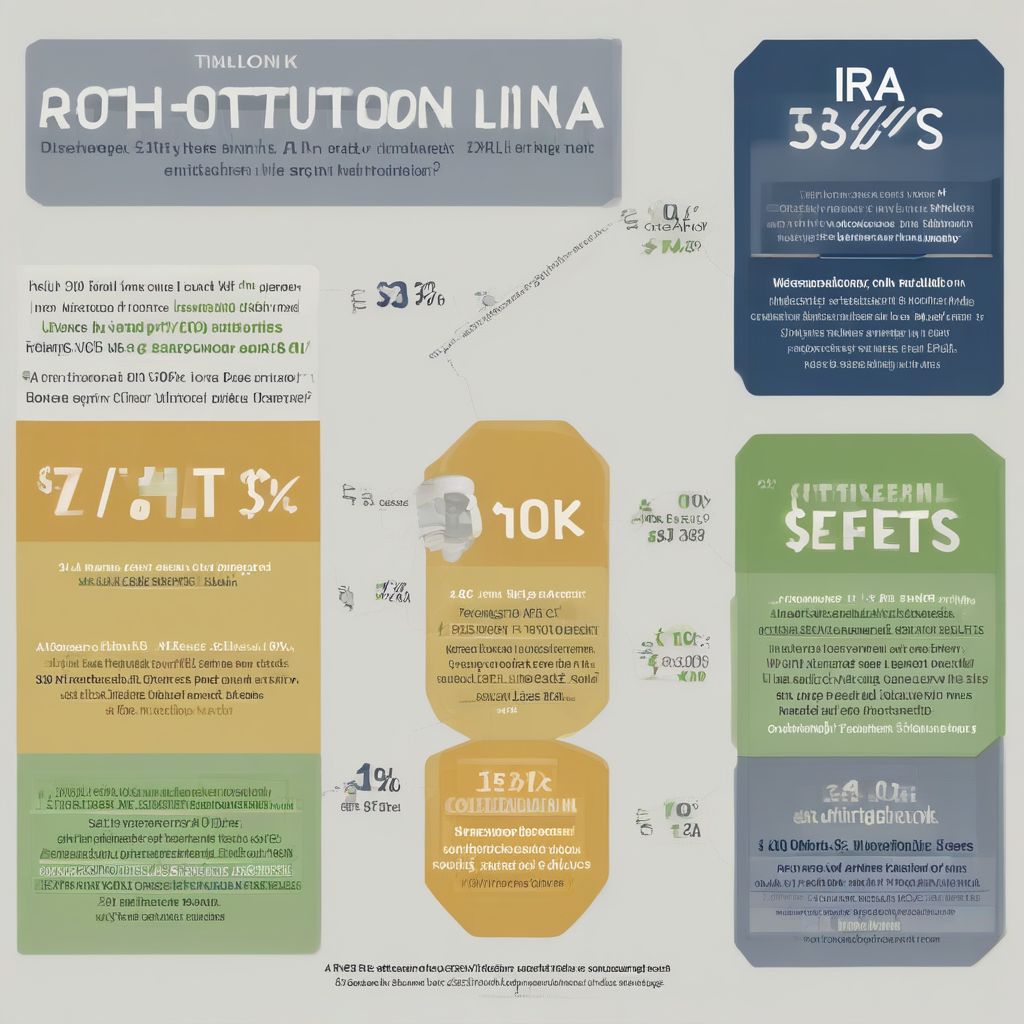Ever dream of sipping margaritas on a beach, free from the daily grind? Retirement might seem far off, but the sooner you start planning, the more margaritas you can afford! Choosing the right retirement account is crucial. This guide breaks down the best retirement accounts – 401(k), IRA, and Roth IRA – to help you make the best decision for your future.
Understanding Your Retirement Needs
Before diving into the specifics, let’s understand why these accounts are important. Think of retirement accounts as special savings vehicles designed to grow your money tax-advantaged for your golden years. They offer various benefits like tax deductions, tax-free growth, and employer matching contributions (in some cases).
401(k): Making the Most of Employer Benefits
A 401(k) is an employer-sponsored retirement plan. Your contributions are made pre-tax, meaning they reduce your taxable income now. This can lead to significant tax savings in the present. Many employers also offer matching contributions, essentially free money towards your retirement!
Traditional 401(k): Tax Savings Now
With a traditional 401(k), you contribute pre-tax dollars, and your investments grow tax-deferred. You’ll pay taxes on your withdrawals in retirement.
Roth 401(k): Tax-Free Withdrawals Later
The Roth 401(k) flips the script. You contribute after-tax dollars, but your qualified withdrawals in retirement are tax-free! This is a great option if you anticipate being in a higher tax bracket in retirement.
Individual Retirement Accounts (IRAs): Taking Control of Your Retirement
If your employer doesn’t offer a 401(k) or if you want to save even more, an IRA is a great choice.
Traditional IRA: Tax Benefits Now
Similar to the traditional 401(k), contributions to a traditional IRA may be tax-deductible, depending on your income and whether you or your spouse is covered by a retirement plan at work. Your earnings grow tax-deferred, and you pay taxes upon withdrawal.
Roth IRA: Tax-Free Growth and Withdrawals
The Roth IRA offers the benefit of tax-free qualified withdrawals in retirement. Contributions are made after-tax, but your investments grow tax-free, and you won’t owe taxes when you take the money out.
Choosing the Right Retirement Account: A Personalized Approach
The “best” retirement account depends on your individual circumstances. Consider factors like your current income, expected retirement income, and risk tolerance.
Current Income vs. Future Income
If you expect to be in a lower tax bracket in retirement, a traditional 401(k) or IRA might be beneficial. If you anticipate a higher tax bracket, a Roth account could save you money in the long run.
Employer Match: Free Money!
If your employer offers a 401(k) match, contribute at least enough to take full advantage of it. It’s like getting a guaranteed return on your investment.
Investment Timeline
The longer your time horizon, the more time your investments have to grow. This allows you to take on more risk, potentially leading to higher returns.
 Retirement Accounts Comparison Chart
Retirement Accounts Comparison Chart
Maximize Your Retirement Savings: Tips & Strategies
Regardless of the account you choose, maximizing your contributions is key. Increase your contributions whenever possible, even small increments can make a big difference over time.
Common Questions About Retirement Accounts
Here are answers to some frequently asked questions:
What is the contribution limit for 401(k)s and IRAs?
Contribution limits can change annually. Check the IRS website for the most up-to-date information.
Can I have both a 401(k) and an IRA?
Yes, you can have both! This can be a great strategy to maximize your retirement savings.
When can I withdraw money from my retirement accounts?
Generally, you can withdraw penalty-free after age 59 1/2. There are exceptions for certain circumstances, such as first-time home purchases or qualified education expenses (for Roth IRAs).
Consult a Financial Advisor
This information is for educational purposes only and is not financial advice. Consult with a qualified financial advisor to create a personalized retirement plan.
- Pfau, Wade (Author)
- English (Publication Language)
- Orman, Suze (Author)
- English (Publication Language)
- Moon, Brian Keith (Author)
- English (Publication Language)
- Snow CFP MBA, Ted (Author)
- English (Publication Language)
- Larimore, Taylor (Author)
- English (Publication Language)
- Pfau, Wade (Author)
- English (Publication Language)
- Review, Harvard Business (Author)
- English (Publication Language)
- Quinn, Jane Bryant (Author)
- English (Publication Language)
Conclusion: Securing Your Financial Future
Choosing the right retirement account is a critical step towards securing your financial future. By understanding the nuances of 401(k)s, traditional IRAs, and Roth IRAs, you can make informed decisions that align with your individual goals and circumstances. Remember, the sooner you start, the better prepared you’ll be to enjoy that margarita-filled retirement you’ve always dreamed of. Leave a comment below and share your retirement planning journey! Let’s work together to build a financially secure future.











